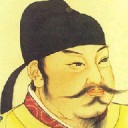
14. What stops one branch of government from becoming too powerful?
2015-03-22 07'08''
主播: 东胜神
1304 276
介绍:
14. What stops one branch of government from becoming too powerful?
Answer:
• Checks and balances
• Separation of powers
Explanation:
The people who created the U.S. government wanted a way to make sure that no
one branch (or part) of the government becomes too powerful. They built a system
of checks and balances, also known as a separation of powers, into the
Constitution.
We can find one example of checks and balances in the United States’ process for
making laws. Congress, or the legislative branch, is responsible for making and
passing (or approving) laws. But what if Congress writes and passes a law that is
unconstitutional (or that doesn’t follow the Constitution), such as a law that says that
Americans no longer have freedom of speech? If a law like this were passed, the
President as part of the executive branch could veto (or cancel) the law. Another
way to stop this law would be for the Supreme Court, part of the judicial branch, to
say that it is against the Constitution, using its power of judicial review (or the power
to overturn or undo laws passed by Congress). In this example, you can see that
when one branch tries to do something that does not follow the Constitution, one or
both of the other branches can stop that from happening.
Another good example of the separation of powers is the process by which a person
becomes a Supreme Court justice (or a judge on the Supreme Court, the most
powerful court in the U.S.). A prospective (or potential or possible) Justice is first
appointed (or chosen) by the president. Congress must then approve of this
appointment by getting a majority vote, which means that more than 50% of
Congress must vote “yes” for the prospective judge. After receiving approval from
Congress, the justice serves a life term (or for the rest of his or her life) on the
Supreme Court. As a Supreme Court judge, he or she can make decisions based
on what the Constitution says, without worrying about what Congress or the
President think. This way, the Justice can help overturn a law passed by Congress
or decide that one of the president’s actions does not follow the law, without
worrying about losing his or her job!
Glossary
14. What stops one branch of government from becoming too powerful?
system – a way of doing something; a set of procedures or steps for how things
should be done
* Laila has such a great organizational system that she always knows where
everything is.
checks and balances – the separation of powers in the U.S. government so that
none of the three parts of the government has total control over everything and each
part has about the same level of power
* One example of checks and balances in the U.S. government is that the president
has to approve the things that Congress wants to put into law.
veto – to reject; to cancel; to say that something should not be allowed to happen
* The children wanted to have soda for breakfast, but their mother vetoed that idea.
to overturn – to undo something; to use one's power to undo what another person
or organization has done
* When the prince became king, he overturned many of the laws that his father had
made.
Supreme Court justice – a judge on the supreme court, which is the most powerful
court in the United States
* Yevgeny is going to law school because he wants to become a Supreme Court
justice.
prospective – potential; possible
* Melissa calls at least 10 prospective buyers every day, trying to sell the company's
products.
appointed – chosen for and given a position by someone with a lot of power
* Who was appointed as the new dean of the College of Sciences?
majority vote – a vote where more than 50% of the voters say "yes" to something
* Nobody won the majority vote, since even the most popular candidate got only
43% of the vote.
life term – a period of time that lasts for the rest of one's life, usually until one dies
or until one decides that one does not want to continue doing something
* In the United States, the president can never have a life term, since he or she can
have only two four-year terms.

